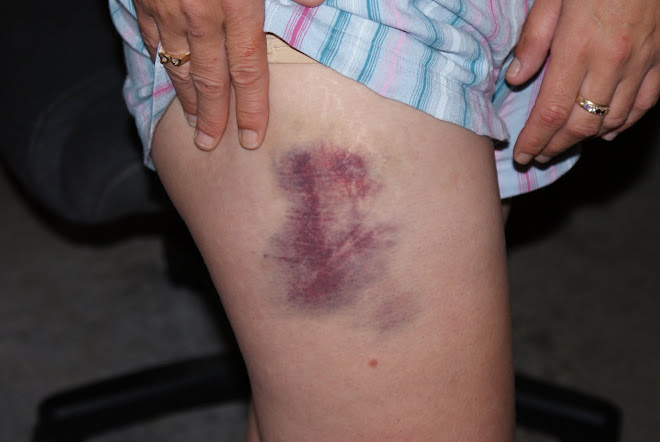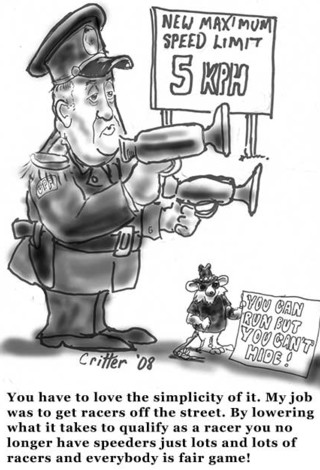Source:National Post
Father Raymond J. de Souza,
National Post
Published: Thursday, December 31, 2009
Ten years ago the television series Due South went off the air. Don't remember it? The first-ever Canadian-made series on an American network prime-time schedule, Due South was also one of the more popular series on Canadian television. The friendly Mountie in America was the premise, using Canadian politeness, cleverness and kindness to capture Chicago's bad guys.
That was so last century, when the RCMP was thought to be one of the proudest boasts of our country. No more. Perhaps no other Canadian institution had a rougher decade than the RCMP. The new year will bring the report of the Braidwood inquiry, which will authoritatively tell us what its hearings have already revealed, namely that an unarmed man died in the Vancouver airport following extreme RCMP recklessness or incompetence, and then the force lied to cover it up.
This past year also brought the criminal convictions in the 2005 Mayerthorpe killings of four RCMP officers. Had the RCMP conducted the Mayerthorpe raid with more patience and competence, it is very unlikely that four officers would have been killed by one gunman. Ashamed and angered by the losses, the RCMP set out to convict someone of being an accomplice. The murderer was already dead, and it would be embarrassing to formally acknowledge that one man, under siege, was able to outwit, with deadly results, four RCMP officers. So our national police force did what it often does when faced with a difficult murder case with no credible evidence -- they resorted to the "Mr. Big sting" operation. It's an entrapment technique of such coercion, deception and apparent criminality that police forces in the United States and Britain are barred from using it. The RCMP likes it because it gets convictions, even if wrongfully obtained.
The discrediting of the RCMP is only one part of a larger story. During the Aughts we learned that abuse of power in the criminal justice system is not rare. The system is corrupt. Not the corruption of bribing a judge, but rather the deeper corruption of a system which seeks convictions rather than the truth. It is the corruption of a system that puts innocent people in jail.
Canadians might think this is an old story. Didn't Donald Marshall in the 1980s and David Milgaard in the 1990s already teach us these lessons? We know now that those cases were only remarkable for their novelty. Miscarriages of justice are not rare. Wrongful convictions no longer make the front page -- one comes to light every few months. The Aughts brought us the Goudge inquiry, revealing that for 20 years in Ontario, innocent parents were put in jail for raping and killing their own children. The villain that time was a corrupt pathologist who enjoyed the necessary connivance of the police and crown prosecutors. We also discovered this past year that Ontario crown prosecutors routinely and illegally enlisted the police to help them rig the jury pool.
Whether in matters as gross as that, or more trivial, we have seen that the extreme powers granted to our police, prosecutors and courts are often abused to the detriment, as is always the case, of the poor and the marginal. The ongoing crisis in legal aid means that many who need it can't get it, and those who do get it often get something very inadequate indeed. Pity anyone other than the very wealthy who is targeted by the police and prosecutors. Better that he is guilty, for he is likely to be ground up anyway. Consider just one example -- the decision of the Ontario government to continue enforcing its street racing law after two courts have already ruled it unconstitutional on the straightforward grounds that it does not permit the accused to offer a defence.
The next decade will see the corruption of our criminal justice system come to a head. A wilfully obtuse federal government is determined to create more criminal offences, impose longer jail sentences and grant the prosecutorial state ever more powers. At the same time as this bureaucratic arm of the state is being engorged with more raw power, the new communications environment will expose more of its corruption. (Absent the video footage, the RCMP in Vancouver would have quietly shipped Robert Dziekanski off to the morgue and placed an exculpatory and fraudulent report in the file.) These two trends, along with the power of DNA technology to exonerate the innocent currently in our jails, will consistently highlight the abuses of power in the criminal justice system.
The Aughts have taught us that criminal justice is not immune from the incompetence and abuses which mark other powerful bureaucracies -- whether they be health care or public works, General Motors or the chancery offices of the Church. Perhaps by 2019, with saner criminal laws, more intelligent incarceration and massively more legal assistance for criminal defendants, our criminal justice system may become more worthy of the name.
Tuesday, January 26, 2010
Subscribe to:
Post Comments (Atom)
They had No Choice!

They wore these or I took away thier toys for 7 days!
"Damn Street Racer"pays with Brusies


















No comments:
Post a Comment